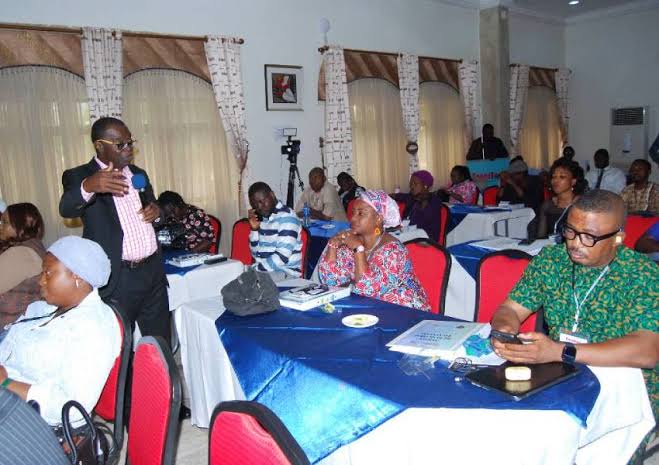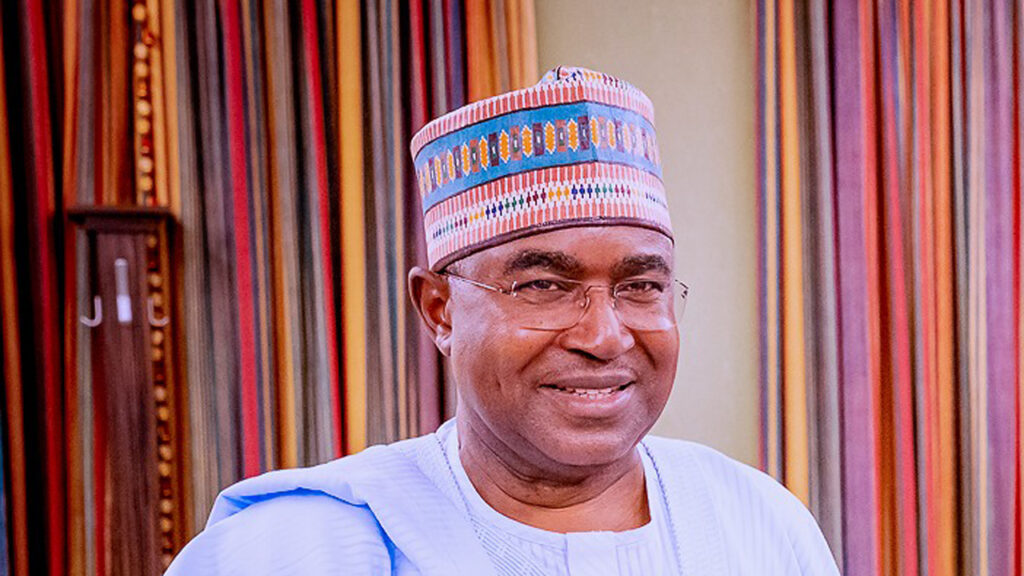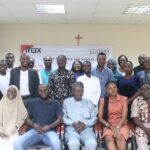
Media experts have asked journalists to prioritize audit reporting as part of the efforts to undertake their responsibility of holding politicians to account on behalf of the citizens.
They also said that journalists have the most important weapon that would be used over politicians in ensuring that governments are held to account for their actions in public interest.
The experts spoke during a media training to sensitize media on their constitutional powers and obligations to the citizens. The training was organized by the FrontFoot Media Initiative in conjunction with the Woke Soyinka Center for Investigative Journalism (WSCJ) and MacArthur Foundation.
The two-day training workshop which had media participants drawn from the print, broadcast and online platforms, was third edition in series, and held in Abuja.
Facilitator of the training and former Managing Director and Editor-in-Chief of The Guardian Newspaper Limited, Mr. Emeka Izeze, said that journalists must provide evidence, possibly witness in their stories for the public interest and not for individuals.
Izeze also urged journalists to engage experts during their investigations before reporting. He added that, “As journalists, you need to describe things, outline a description of the story you are doing, and it is very necessarily to conduct a full investigation. Then, give a rating account of the story you are telling, learn to tell stories in your news.”
Former President, Public Relations Consultants Association of Nigeria, Chido Nwakanma, was the Guest Speaker at the training. He explained that the training aimed at sensitizing media industry on the opportunity towards broadening the boundaries of transparency and accountability in the country.
He said: “What you do as journalists is vitally important to the society. So, understanding the elements of journalism which are objectivity, verifiability and accuracy will help to create a clearer sense on the purpose and functions of journalism in the modern society. A journalist’s first obligation is to tell the truth, that is why they say we are truth tellers.
“Our first loyalty is to the citizens, not your editor or publisher, but to your audience who are readers and listeners. The essence is a discipline of verification and each reporter must gain independence from those they cover for.”
Adding: “We should be able to exercise independent’s right without hindrance. The media should understand its role as the country “watchdog” of the society, while applying emotional intelligence during reportage.”
In his presentation, the past President of the Institute of Chartered Accountants of Nigeria (ICAN), Alhaji Ismaila Muhammadu Zakari, called on media organizations to create capacity building and training opportunities for journalists.
He also noted that audit report by Auditors General of the 36 states of the federation are critical to ensuring accountability of public officers in the control and management of public funds.
Speaking on holding the state government accountable, Director of Frontfoot Media Initiative, Sully Abu, said, “No corner is as powerful and influential as the media, which has a constitutional and institutional obligation to hold everyone, including itself, to account. To do so, we must constantly remind ourselves of the things that matter, enabling us to do our work and build our capacity to do it effectively.
“The self-inflicted tragedies of our nation have derived substantially from the failure to hold people, not just the leaders, to account for their actions and transgression.
“This has been quite, evident at the state level, where governance touches most people’s lives, and only cursory attention is paid to the constitutional and institutional mechanisms to enforce accountability.
“The result is that in many places, state governors have turned into local potentates who, because of their often-unfettered access to and control of the public treasury, can suborn individuals and other branches of government to do their will with results not always guaranteeing public good.”













